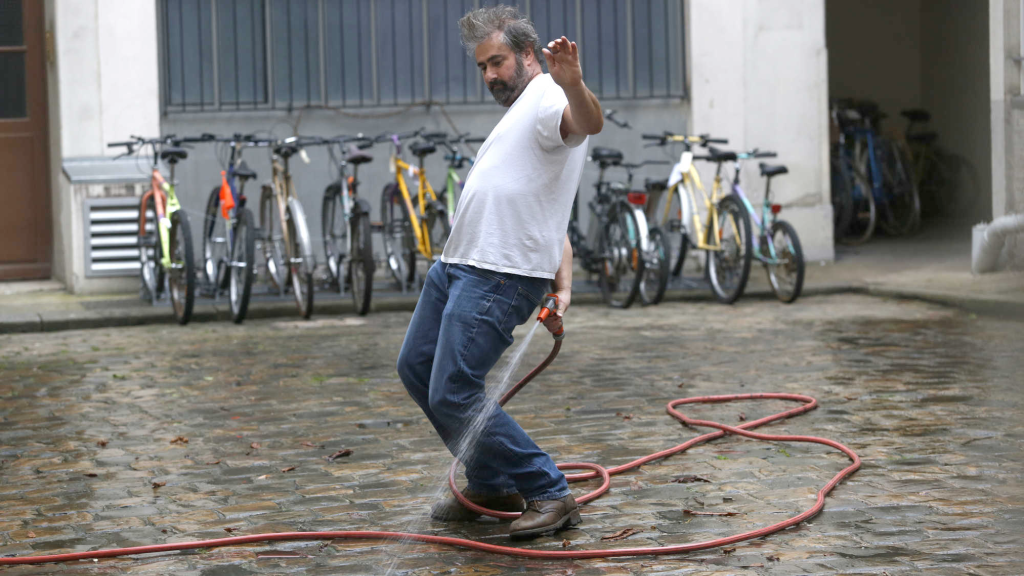TOM GLEDHILL reviews Pierre Salvadori’s ‘In the Courtyard’ at the French Film Festival UK.
Director: Pierre Salvadori
Screenplay: Pierre Salvadori & David Colombo Léotard
Cast: Catherine Deneuve, Gustave Kervern, Féodor Atkine
In the Courtyard is the sort of film that, despite its flaws, will always win you over on the strength of its leading man. Our protagonist here is Antoine (Gustave Kervern), a deeply depressed musician who quits his band by walking off stage one night, and eventually finds himself as the janitor of a residential Parisian courtyard. Though a drug-addicted, alcoholic insomniac, his presence is one of gentle affability and muted sorrow. Kervern delivers a wonderfully understated performance and imbues Antoine with just the right amount of reticence and child-like naivety, rendering a full and believable character who, whether playing with a garden hose like a water pistol or clumsily stealing impractically large plants from local parks, is utterly warm and entirely sympathetic.
At once, Antoine sets about attempting to fix-up and maintain the apartment block, but nothing ever seems to go smoothly; a mixture of both his own ineptitude and, in part, the strange behaviour of his new neighbours, which are comprised of an ensemble of idiosyncratic characters: a heroin-addicted bike-thief who can’t stop falling asleep and a member of a light worshipping cult who constantly skirts the line between enthusiastic and frightening, for example.
However, it’s his employer, Mathilde (Catherine Deneuve), with whom he discovers the most affinity. A fellow insomniac, Mathilde is also getting to grips with her own mental health problems—the slowly expanding cracks in her living-room wall shifting from a minor obsession to a major anxiety about the structural integrity of the entire building. It’s through the delicate construction of this relationship (and the strange understanding that develops between the two) that the film manages to navigate both its lightly comedic and more emotionally hefty territory, for the most part, pretty well. Perhaps the best example is in one of the film’s later moments, in which Antoine takes Mathilde to her childhood home in an attempt to escape from both the courtyard and her husband for the day. After a few initial exchanges with the new owner, Antoine begins to realise that the atmosphere is rapidly deteriorating, but it’s simply too late for anyone to do anything about it. Before he can drag her away, Mathilde somehow manages to contaminate everyone involved with her own distress as her response to the differences in the house from her memory become increasingly erratic and traumatic. In tense scenes like this, the film pitches the dramatic and comedic elements just right, in a way which fits completely with the overarching progression of character.
When the film doesn’t work quite so well it’s never a fault of its performers; rather, it’s the overall tone of the piece that at times is simply misjudged. A surreal sequence in which a dog looms over a cityscape in B-Movie Monster fashion is particularly incongruous, messing with the soft indolent rhythm of the film’s slowly darkening comedic exchanges. At its centre there is also a real tension between the subtlety of performance and the heavy-handedness of its storytelling and symbolism. The film’s transition into heavy dramatic territory feels a little too quick in its final act, and its last movement in particular decidedly on-the-nose in its execution. Thankfully, Antoine’s soothing company ensures enough of the drama and comedy work for it to remain enjoyable, even when the rest of the film falls a little flat.
To read more from Tom, you can check out his blog HERE.






